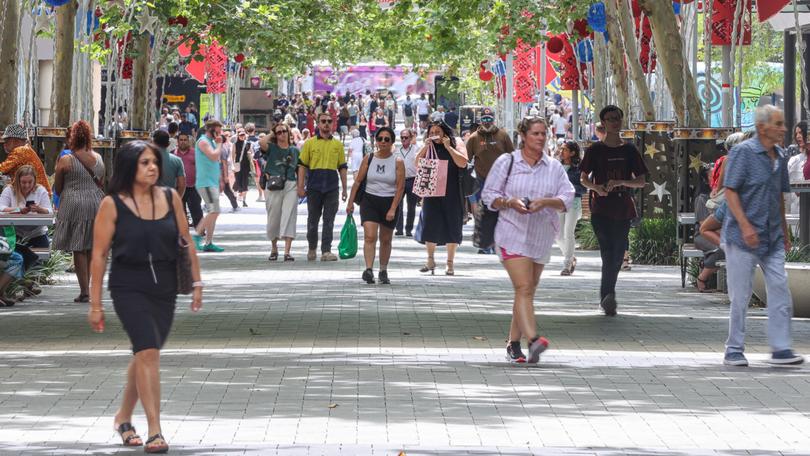January consumer sentiment plunges as families battle cost-of-living pressures
Consumer sentiment has plunged to its lowest January level in half a century outside the early 1990s recession as Australians grapple with cost-of-living pressures and fears they will worsen.

Consumer sentiment has plunged to its lowest January level in half a century outside the early 1990s recession as Australians grapple with cost-of-living pressures and fears they will worsen.
Family finances appear to be under renewed pressure, the latest Westpac-Melbourne Institute consumer sentiment index on Tuesday revealed, and families are in a worse position than they were in the lead-up to Christmas.
“Many consumers may be facing a bigger than usual post-Christmas financial ‘hangover’ as the full impact of the higher cost-of-living on festive season spending becomes apparent,” said Westpac senior economist Matthew Hassan.
Sign up to The Nightly's newsletters.
Get the first look at the digital newspaper, curated daily stories and breaking headlines delivered to your inbox.
By continuing you agree to our Terms and Privacy Policy.The monthly survey has been running since the mid-1970s. Mr Hassan noted the only time a more pessimistic start to the year had been posted was during the early 1990s during Australia’s deep recession.
Consumers were more hawkish about the interest rate outlook than analysts, financial markets and economists, he said — half of all surveyed consumers expect mortgage rates to rise, compared to an expectation by markets that half a percentage point will be cut by year’s end, and three in four economists expecting rates to slide.
“Consumers with a mortgage are warier still, with 60 per cent of this sub-group bracing for rate rises,” Mr Hassan said.
The next meeting for the Reserve Bank is February 6, with all eyes on quarterly inflation data due on January 31 which will be a key component in the RBA’s decision.
Mr Hassan expects rates to stay on hold — in line with most economists at the big four banks, NAB the exception — but a higher-than-expected inflation figure would make the RBA’s decision more difficult, he said, given how consumers are under pressure.
Separately, ANZ and Roy Morgan’s weekly gauge of consumer sentiment showed consumer confidence slipped marginally but increased in WA.
“Confidence about financial conditions and current economic conditions rose, while future economic conditions confidence scaled back after a jump last week,” ANZ senior economist Adelaide Timbrell said.
Ms Timbrell added ANZ expected the inflation rate to be 3.2 per cent by the end of the year — down from 5.4 per cent now — which would “help confidence” across the economy.
Another Roy Morgan poll suggested an additional 40,000 mortgages would be at risk of mortgage stress, putting the national tally to 1.53 million, or nearly 31 per cent, if the RBA was to raise rates to 4.6 per cent at its February meeting.
“If there is a reacceleration in inflation over the months ahead that results in further interest rate increases in 2024 levels of mortgage stress will start trending upwards again despite easing in recent months,” Roy Morgan chief executive Michele Levine said.
